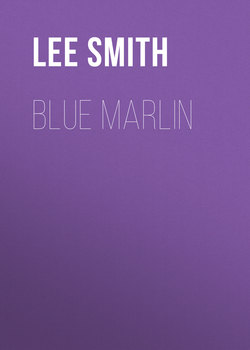Читать книгу Blue Marlin - Lee Smith - Страница 10
На сайте Литреса книга снята с продажи.
ОглавлениеBUT MOST PEOPLE, including Mama, forgot about Carroll Byrd as spring turned into summer and more recent events claimed everyone’s attention. Susan Blackwelder had a miscarriage, then fell into a depression; old Mr. Bishop retired and then sold his downtown Commercial Hotel to two young men from Washington who were reputed to be “homos,” which interested me, naturally, and led to some fascinating observations. Best of all, Miss Lavinia Doolittle knelt but never rose from taking Communion at the altar in the Episcopal church on Palm Sunday. She died with her wafer in her mouth. I loved this, and was furious that we had missed it by attending the eleven-o’clock service rather than the nine-o’clock, just because Mama always said nine o’clock was “too early for God or anybody.”
Still, I didn’t forget about Carroll Byrd. I rode my bike about once a week all summer long, with time off for camp and Bible school and the beach. I’d usually find her outside, wearing a halter and cutoff jeans, working in the garden with her braided hair wound on top of her head. She was brown as a berry, strong as a man. The garden thrived, with shiny red tomatoes and big-leafed tropical-looking squash plants and enormous sunflowers that nodded on their stalks like happy idiots. I could have stepped right up and spoken to her, and often I thought I would, but somehow I never did. One time she put a plateful of fresh vegetables from the garden on a table outdoors and set up an easel to paint them. I couldn’t see the painting, but I could see her face: dire, ruthless, beautiful.
It stayed with me all summer while I went off to 4-H camp and then Camp Nantahala and then to Virginia Beach with my mother and Jinx and Jinx’s mother. Virginia Beach was loud and bright and fun, though Jinx and I were dismayed to find that a boy from our very own class back in Lewisville, Buddy Womble, was staying down the beach, and would not let us alone. He liked to sneak up on us while we were lying out in the sun with little wet pads of cotton over our eyes, as suggested by Teen magazine. “Gotcha!” Buddy Womble would holler, kicking sand, which stuck to our baby-oiled arms and legs and made us look like sandpaper girls. Then he’d run off down the beach laughing his big fake laugh, “Har-dee-har-har,” at the top of his lungs. Jinx and I hated him. We went spying on his cottage one night and were appalled to witness Buddy’s fat father, sitting alone on the porch, bury his face in his hands and sob as if his heart would break. This violated every known rule of conduct. Men were not supposed to cry, especially not fathers. “Yuck,” Jinx mouthed at me, her round white face like a horrified little moon in the shadows. I felt my own heart drop to my feet in a long, sickening fall. The next day, we were a lot nicer to Buddy on the beach.
Our mothers played bridge and went on a gin-and-tonic diet, which meant that they walked up and down the beach a lot with insulated plastic tumblers in their hands. Jinx and I won cheap jewelry by throwing softballs at stuffed cats in the amusement park, rode rented bikes, and drank some gin of our own with three girls from Durham, North Carolina, who had stolen it from their parents. We bleached our hair with lemon juice. We got real tan, and did not burn our eyelids. The weather was perfect every day except for the last one, which dawned rainy, and so we packed up and drove home early to surprise our daddies.
They would be at work, of course, when we got there. Mama dropped Jinx and her mother off first, then let me out at home and went on to the grocery store. I let myself in with the key and took my bag upstairs to my room, which looked smaller now, a baby’s room. I put my bag on the bed and turned to the mirror and then stopped still, in shock—I almost failed to recognize myself! My bleached blond hair, grown out longer than it had ever been, curled all around my dark face, which looked different, too … thinner, not so babyish.
I raced outside and got my bike out of the garage and rode off to see Carroll Byrd. It was a drizzly, humid August day; I was covered by a fine mist of rain, like my own sweat, by the time I turned down her lane. I rode until I reached the hedge where I always hid my bike, then slipped behind the farthest boxwood, looking toward the house.
But I went no closer.
For there, parked right in front, was Daddy’s car, the familiar big gray Oldsmobile with the AAA and Rotary Club stickers. Even from where I was, I could see his old canvas hat stuck under the back windshield.
I waited and waited. At first I thought, Oh well, Daddy’s her lawyer. This is a lawyer visit. Then I stopped thinking anything, as gradually it came over me. I didn’t move a muscle. I stayed behind that boxwood for one hour and forty minutes by my watch, and then dodged back to the hedge and got my bike and rode home. When I went to bed that night, after Mama’s special supper and Daddy’s big hello, my arms and legs ached and ached, as if I had run a race, or climbed a mountain.
